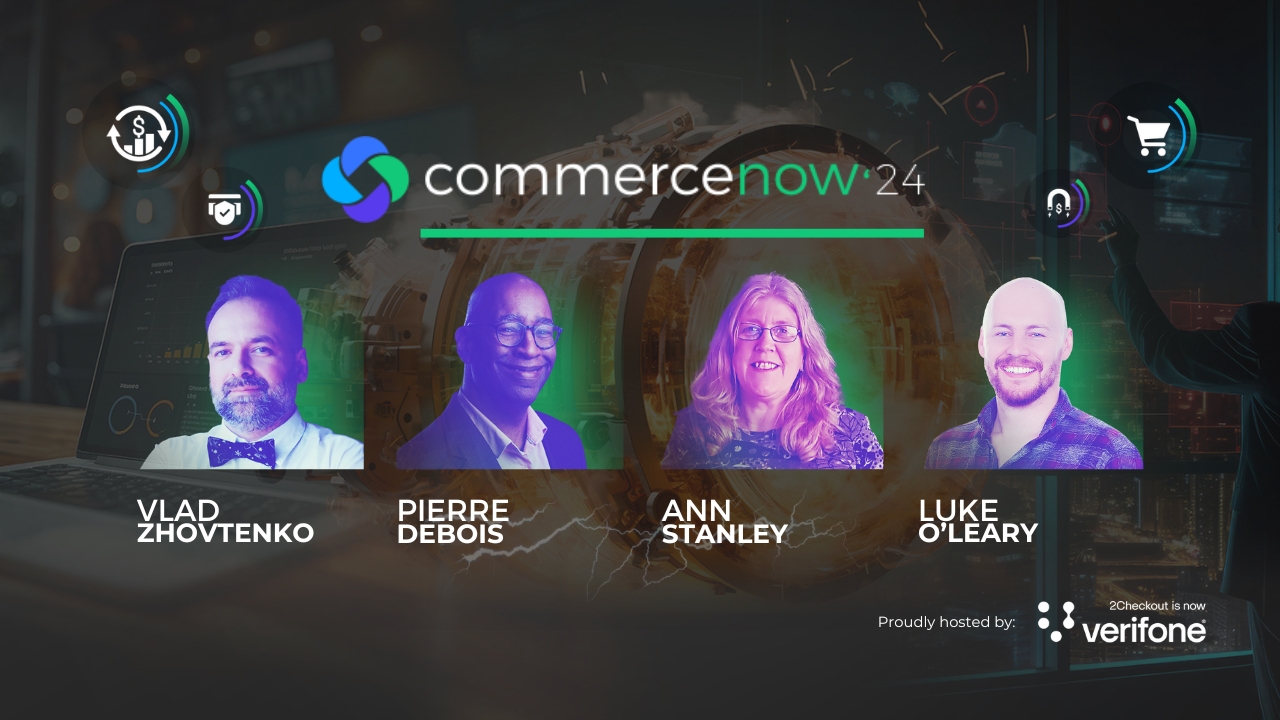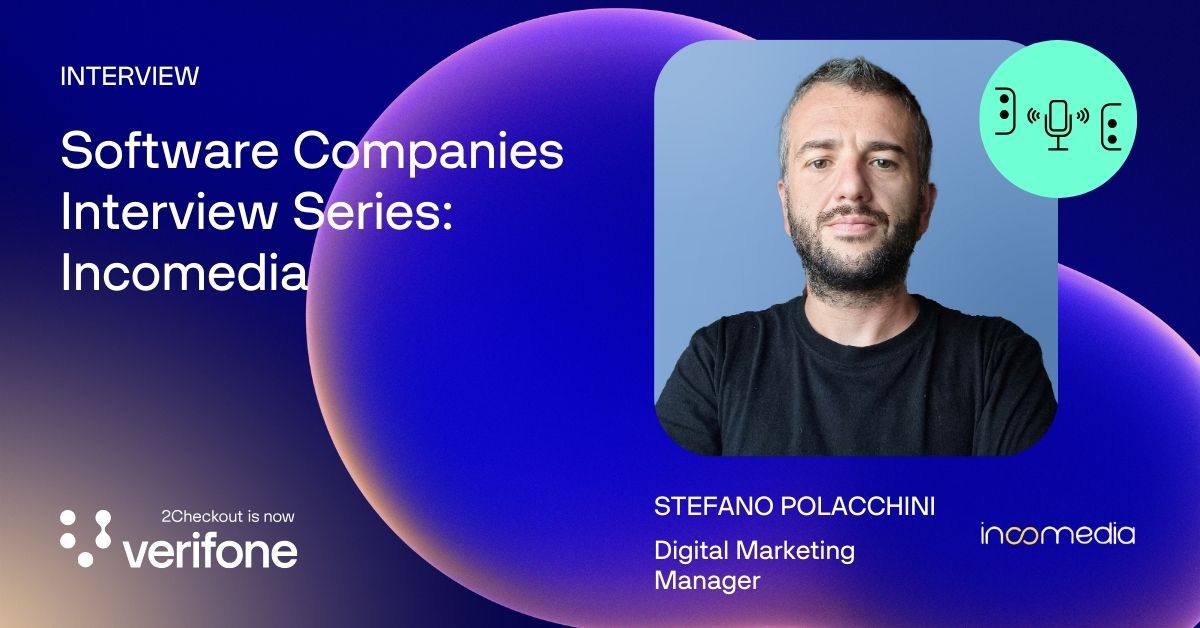Welcome back to a new episode of our 2Inspire Interview Series, where we feature entrepreneurs, experts, and creatives across the SaaS and eCommerce industries, all of whom are eager to share their knowledge and experience.
For this episode, we had a great time catching up with Tim Soulo in an engaging conversation. Tim is currently CMO at Ahrefs, an industry-leading SEO tool. He has almost 10 years of experience in SEO and digital marketing, making him a reputable thought leader in the industry. Tim is always eager to share the knowledge he has accumulated along the way, as a seasoned speaker at conferences worldwide and the author of many SEO research studies and blog articles for Ahrefs Blog.
However, this wasn’t always the case. In the first part of our interview, we learn about Tim’s interesting professional journey which had him pivot from spinning records at the nightclub to blogging and marketing. Then we delve into the strategies that Ahrefs use to promote their content and improve trial conversion rates (you certainly don’t want to miss the latter – it’s definitely not your typical strategy 😉). Tim also discusses how to effectively use word-of-mouth as a SaaS acquisition strategy and create engaging B2B content. Finally, keep an eye on the actionable SEO metrics and ranking factors he’s recommending businesses take into consideration.
This new episode is poised to equip you with tips and tactics to level up your SEO game, so make sure to watch it all!
Check out the full interview below:
Interview Excerpts:
Q1: Can you share more about how you pivoted in your professional journey? (00:14)
“The way I transitioned from being a DJ to being a professional marketer was by simply understanding that I didn’t want to pursue the career in electronic music. I needed some other profession where I could learn and excel. So, I knew that I wasn’t very interested in web design, and I wasn’t very big fan of programming, so I realized one other area that seemed interesting to me was marketing, and specifically search engine optimization. This is how I got my first entry level job and things just escalated from there.”
Q2: Tell us a bit about Ahrefs and how it differentiates itself from its competitors. (01:03)
“The way we differentiate is by focusing on search engine optimization specifically. Some of our competitors try to become a digital marketing tool for everything, while Ahrefs is specifically focused on search engine optimization and helping you create content that would be discoverable in search engines. For that, we try to create the best tools and features, and we try to be focused and create just the fundamental things that people need. And we create lots of educational materials, because not only do we want to provide people with the tools that will help them optimize their websites and create content that will be discoverable, but we also want to teach them the fundamentals of SEO. And we try to promote the idea that SEO is not some secret, technical, black magic, but it is something that can be learned by pretty much anyone.”
Q3: What is one blogging insight that stuck with you, from your past experience of running various blogs? (02:11)
“The best blogging advice that I can give to people is don’t focus on writing about things, focus on doing things. It’s one thing to read a bunch of articles by other people and rewrite your own version on your blog. Essentially, you’re just creating copycat content that no one is interested in. But when you read articles by other people, and try to act on what they are teaching, and then you write your own article based on your own experience, where you tested something, then your content would be interesting.”
Q4: How can SaaS businesses make word-of-mouth one of their biggest customer acquisition channels? (03:12)
“The best thing you can do to accelerate word-of-mouth is to impress people. Do something that would be impressive to your customers, especially, as opposed to some competing products. For example, if you’re selling soap, try to, first of all, create the kind of soap that would drive people nuts with its texture, smell, or try to impress people with the packaging, make it super beautiful, make it personal, etc. Make people happy about using your product, and, of course, make people successful. Make sure that your product achieves whatever people buy it for and try to impress people so that they would want to talk to their friends about your product and recommend it. That’s how you accelerate word-of-mouth.”
Q5: What do you see as the pillars of quality content that stands out in SERPs? (04:15)
“The way to create content that would stand out is to be a journalist rather than a writer, or a copywriter, or a content marketer, even. When they think of creating content, many people just think about opening a Google document and writing some words on it that would later be published on the blog. But a journalist can actually join some criminal group and do assignments for them for a year just to infiltrate and understand how it all works, and then, later, write a column for the New York Times about how a certain criminal group operates. So be more like the journalist, do things rather than just open a Google document and write an article.”
Q6: Any tips on how businesses can make B2B content more engaging and high-converting? (05:08)
“I don’t understand why B2B content is dull in the first place. It doesn’t matter who you’re speaking to – to businesses or customers – because it’s not the company that is reading an article. It’s not that as the board of directors gathers in a room, they pull up your article on the big screen and start reading it. No, it’s individual people who are reading content. So, make sure that your content is well-written for the persona you want to consume this content. If you think that the people who you’re speaking to, even those C-level executives, want a well-written piece of content that has some jokes or memes, do this, and they will thank you for that.”
Q7: How does Ahrefs promote the content they produce? (06:13)
“We have an email list of people to whom we send an email, we have our following on Twitter, we have our Facebook group with our customers. There are some platforms where people follow us, and we distribute our content there. But to reach more people, we use ads – we use Facebook ads, we use Twitter ads, and pretty much any other form of advertising. But the most important way in which we advertise our content is by ranking in Google. Because if your article ranks at the top search results for whatever problem or keyword people are searching for, it is free advertising for you.”
Q8: How do you improve trial conversion rates at Ahrefs? (07:12)
“We don’t; that’s the funny thing. We think that people make a decision to become your customer before they sign up for the trial. In our case, the trial is paid, which is very uncommon for software companies. The reason we are able to get away with it is because people consume lots of educational materials – on our blog, on our YouTube channel, from our courses and interviews like this one – so they already understand how our software works, what kind of results they would be able to achieve with it and this is why we don’t really need to do anything after they sign up for the trial. They’re already sold on the software. So, we don’t bother about converting trials into customers; we bother about educating the general audience that our tool is awesome, and they make the decision to become our customers before they even try it.”
Q9: What does it take to outperform larger competitors in search engine results? (08:31)
“It takes time and effort. If you want to outperform larger competitors, you have to play the long game, you have to be building your reputation for a while. There is no shortcut to rank over big brands magically. All you need to do is consistently put in the work towards ranking well. So, for Ahrefs, it’s not that we started ranking the next day after we started implementing some SEO and content marketing strategy. It took us five to six years to get to where we are today. SEO is a long-term game and if you’re unable to outrank your bigger competitors today, don’t give up, just keep doing it, and, eventually, you will be able to wrestle with them at the search results.”
Q10: What is a vanity SEO metric and what are some actionable ones? (09:27)
“A vanity SEO metric would probably be how many times you use a certain keyword on the page to make it relevant, to make Google think that your article is better optimized for some search query than other articles. I would never pay attention to those kinds of things.
A good metric to monitor, if you want to rank well in Google, is how many other websites link to you and, specifically, to the page that you want to rank well. Because when other websites are linking to your page, they give a signal to Google that your page is notable, that it deserves ranking well, that this is the best page there is on this specific topic. So, if you want to rank well, you have to make sure that people are linking to your website.”
Q11: What’s your take on the SEO dilemma of writing new content vs. continuously updating existing content? (10:24)
“It depends on your resources, and it depends on the search queries that you’re targeting. You might have tons of different search queries that you need to create content for, so you will have to create new content very fast to address all those search queries. Or you might have a few dozen search queries that are extremely important for your business and you want to rank for these search queries, in the first place, before you try to address any other search queries and rank for them as well. So, it depends on the business and on the resources that this business has.”
Q12: What are some ranking factors that businesses should focus on? (11:10)
“Ranking well in Google is about two things – creating the kind of content that would answer a person’s query – so, addressing the search intent, and answering the question properly, so that people would be satisfied when finding your search result in Google. And second, getting links because they help Google understand that your page is the better one. As long as you create the kind of page that properly addresses whatever a person was searching for, and, and you get some links to that page, you’ll be good.”
Q13: What is an online tool you rely on the most, and can recommend? (11:56)
“If you’re talking about marketing, the tool I rely on the most is Ahrefs. Another tool that I rely on is Google Search Console because this is data about your search performance from Google themselves.”
Q14: What book would you recommend? (12:14)
“If people need a recommendation of a good book that would help them become a better marketer, I will refer to the classic, which is [Robert B.] Cialdini’s Influence.”
Stay in the Know
We hope you’ve enjoyed today’s interview with Tim and that you were able to collect some valuable tips to make your online business stand out. We’ll see you for our next episode, but until then, you can replay our previous 2Inspire interviews:
- 2Inspire Series – Interview with William Harris, Founder and CEO at Elumynt
- 2Inspire Series – Interview with Matt Bilotti, Product Lead at Drift
- 2Inspire Interview with Matthew Howells-Barby, VP of Marketing at HubSpot





